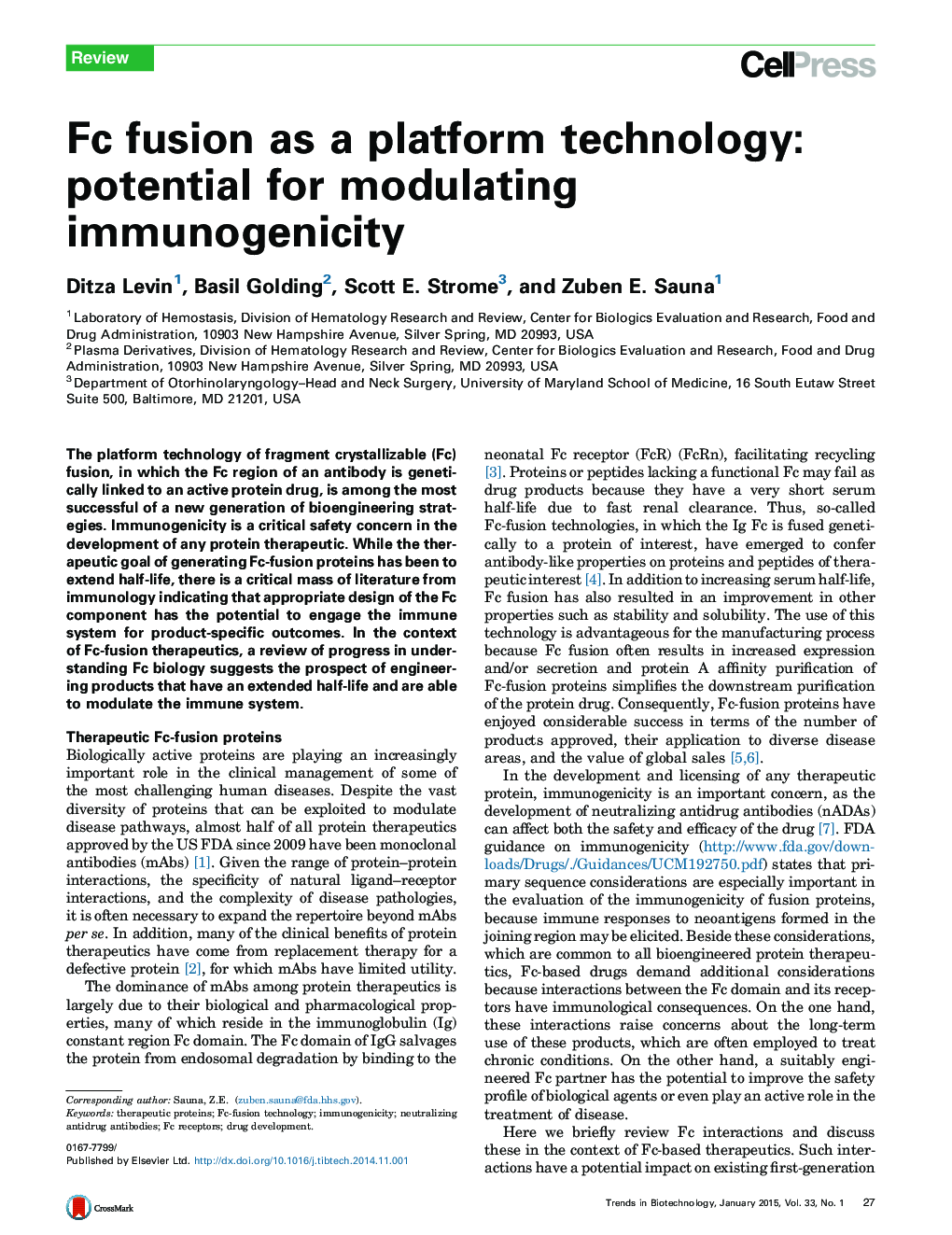| Article ID | Journal | Published Year | Pages | File Type |
|---|---|---|---|---|
| 37016 | Trends in Biotechnology | 2015 | 8 Pages |
•Fc fusion, a platform technology, is used to extend the half-life of protein drugs.•There has recently been considerable progress in understanding Fc immunobiology.•The findings suggest a rationale for engineering the Fc in fusion therapeutics.
The platform technology of fragment crystallizable (Fc) fusion, in which the Fc region of an antibody is genetically linked to an active protein drug, is among the most successful of a new generation of bioengineering strategies. Immunogenicity is a critical safety concern in the development of any protein therapeutic. While the therapeutic goal of generating Fc-fusion proteins has been to extend half-life, there is a critical mass of literature from immunology indicating that appropriate design of the Fc component has the potential to engage the immune system for product-specific outcomes. In the context of Fc-fusion therapeutics, a review of progress in understanding Fc biology suggests the prospect of engineering products that have an extended half-life and are able to modulate the immune system.
